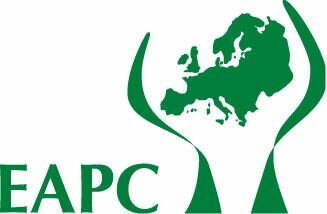|
European Association for Palliative Care EPSO project Section one – for the Applicant |
|
|
In this section, you will find information that you will need to know in order to make a decision about what you want to do and where you want to go. Remember that the GOAL of the stage/placement is to create a learning opportunity through the exchange of shared knowledge for both the Applicant and the Host Centre. This section is divided into two parts:
First, some terms of reference: Applicant Host Centre Mentor Contract/Agreement What are the specific responsibilities of the Applicant? Formulate your learning objectives. Before seeking a placement, it is important to consider what you wish to learn and how this new knowledge will benefit both you personally and your clinical service. A stage/placement will only work well if you can identify clear, achievable and measurable learning objectives which will form the basis of the visit. Depending on the duration of the placement you should have three-four clearly specified objectives which meet your learning needs and will contribute to the development of palliative care services when you return home. Without learning objectives, the value of the stage/placement is limited and leads to confusion and frustration on everyone’s part. You should send your learning objectives to the Host Centre before the start of the stage/placement so that everyone is in clear agreement about the nature and possibilities for learning. Your objectives, which should be based on your clinical, educational and research needs, will be dependent on your professional discipline and be determined by what the Host Centre can offer you. To some extent, this may depend on your professional discipline. As a general rule, there are two types of stage/placement possible;
If you are seeking a “clinical practice placement”, remember that costs may be involved and that registration can take some time to organise. The Host Centre should be able to help you with this. Although it can be an additional cost and effort, the benefit in terms of learning far outweighs these issues. We recommend that an observation stage/placement should not be any longer than two weeks as it can become tedious for both the Applicant and the Host Centre. It is extremely important that the Applicant understands which type of stage/placement they want to undertake and selects a Host Centre that can offer the most appropriate type of experience. Budget It is important to remember that the costs for a stage/placement are entirely the responsibility of the Applicant. It is difficult to offer an approximate figure because this will be dependent on the country of choice and the cost of living. Capital cities can be expensive and you should allow for travel costs, both to and within the country, and for the cost of accommodation and food. It is also important to identify if the Host Centre will charge for the stage/placement. Charges may be on a daily, weekly or monthly basis and may include hourly costs for people’s professional time. This should all be clarified before agreement on the placement is reached. Formulating a Contract/Agreement In brief, the Contract/Agreement is there to ensure that the best possible opportunities are available to the Applicant and that the Host Centre has a clear understanding of what is expected of them. Download here the document. We would recommend that every Contract/Agreement should include the following:
Please note that the contract is an agreement between the Applicant and the Host Centre and the EAPC cannot take responsibility for disputes arising over contractual obligations. Know the language! The Applicant should have at least a working knowledge of the language of the country they wish to visit. It may well be possible to identify a Mentor (see below) who is able to converse in your language but the learning possible will most definitely be dependent on your ability to interact with colleagues. You should aim to be at least competent to hold a conversation and ask questions in the Host Centre language, albeit for socialising! Build up your confidence before your placement by listening to radio and satellite television programmes in the target language if you have access to these. And read anything available in the language too. A document, Preparing for your European Stage/Placement, includes ideas on how to boost your language skills and background reading. During your stage/placement a Mentor will be provided for you. Mentors are experienced health care professionals working in a specialist setting, in this instance, palliative care. The Mentor plays a key role in facilitating, encouraging you to achieve maximum learning from practice objectives. More information on Mentorship see section two. Disseminating outcomes of your stage/placement
Next steps If you are interested in applying to a Host Centre please click here. Look carefully at the information available on the Host Centres, complete the application form and then please forward it to the Centre of your choice and also to the EAPC head office at . All further contact should then be between you and the Host Centre (not the EAPC). We wish you good luck and great learning! The EPSO team. |
